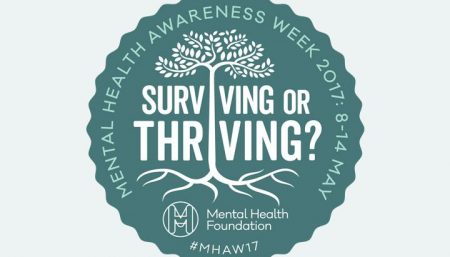The 2022 World Mental Health Day (observed on 10 October every year) theme ‘Make Mental Health & Well-Being for All a Global Priority’ provides us with an opportunity to re-kindle our efforts to make the world a better place.
How do you spot the difference between a bad mood and something more serious? Drinking too much, being a party popper, crying all the time, or any other ongoing, significant change in a person’s behaviors, thoughts or feelings could be tell-tale signs of a mental illness. Learn the signs that could prompt you to think a person or you yourself are dealing with a mental health issue.

There is no reason to shy away when it comes to mental health issues, for some time or the other in life all of us are exposed to them.
The following 10 signs are to reassure you that there might be a good reason to seek more information about your concerns.
1. Feeling Worried
We all get worried or stressed from time to time. But anxiety could be the sign of a mental health issue if it’s constant and interferes all the time. Other symptoms of anxiety may include heart palpitations, shortness of breath, headache, restlessness, diarrhea, or a racing mind.
2. Feeling Depressed
Have you noticed that your friend has lost interest in a hobby you used to share? If they’ve also seemed sad or irritable for the last few weeks or more, lacking in motivation and energy, or are teary all the time, they might be dealing with depression. Regular meditation can calm the mind and reduce stress, making dealing with depression easier. This technique brings you in contact with the present moment and creates awareness of what is around you.
3. Emotional outbursts
Everyone has different moods, but sudden and dramatic changes in mood, such as extreme distress or anger, can be a symptom of mental illness.
4. Sleep Issues
Generally, we need 7-9 hours of sleep each night. Persisting changes to a person’s sleep patterns could be a symptom of a mental illness. For example, insomnia could be a sign of anxiety or substance abuse. Sleeping too much or too little could indicate depression or a sleeping disorder.

5. Fluctuating Weight Gain or Loss
Many of us want to lose a few kilos, but for some people fluctuating weight or rapid weight loss could be one of the warning signs of a mental illness, such as depression or an eating disorder. Other mental health issues can impact appetite and weight too.
6. Quiet or withdrawn
We all need quiet time occasionally, but withdrawing from life, especially if this is a major change, could indicate a mental health issue. If a friend or loved one is regularly isolating themselves, they may have depression, bipolar, a psychotic disorder, or another mental health issue. Refusing to join in social activities may be a sign they need help.
7. Substance abuse
Are you worried a loved one is drinking too much? Using substances, such as alcohol or drugs, to cope can be a sign of, and a contributor to, mental health issues.
8. Feeling guilty or worthless
Thoughts like ‘I’m a failure, ‘It’s my fault, or ‘I’m worthless’ are all possible signs of a mental health issue, such as depression. Your friend or loved one may need help if they’re frequently criticizing or blaming themselves. When severe, a person may express a feeling to hurt or kill themselves. This feeling could mean the person is suicidal and urgent help is needed.

9. Changes in behaviour or feelings
A mental illness may start out as subtle changes to a person’s feelings, thinking, and behavior. Ongoing and significant changes could be a sign that they have or are developing a mental health issue. If something doesn’t seem ‘quite right, it’s important to start the conversation about getting help.
10. Apathy
Loss of initiative or desire to participate in any activity
To top it up, only, a face-to-face session with a qualified mental health professional can begin to diagnose a mental health disorder with any degree of accuracy, because that professional has an outside viewpoint and can pick up on subtle cues.
Disclaimer
The Content is not intended to be a substitute for professional medical advice, diagnosis, or treatment. Always seek the advice of your physician or other qualified health provider with any questions you may have regarding a medical condition.



